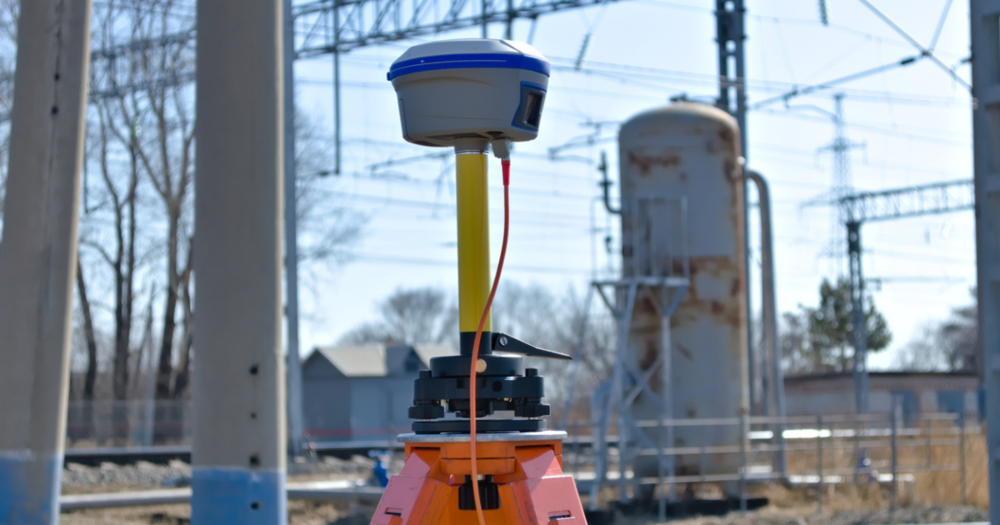
Navigating the regulations for GPS land surveying can seem complex, but these regulations keep surveying practices accurate, standardized, and legally enforceable. From federal to local levels, each set of rules defines how GPS technology can be used and how land surveys are conducted.
Regulatory Bodies
Several layers of government influence land surveys.
- Federal regulations: Agencies like the National Geodetic Survey (NGS) offer resources to increase GPS accuracy and set guidelines on equipment specifications, data accuracy, and reporting.
- State regulations: Every state has its own rules governing land surveying. Some states require specific licensing for surveyors, while others may restrict the use of certain GPS tools.
- Local regulations: Local regulations can include zoning laws, land-use restrictions, or specific permits that must be obtained before conducting a GPS land survey.
Federal Regulations
Federal regulations help establish standards for how GPS technology is used in land surveying, creating consistency and accuracy across various applications.
The Role of Federal Agencies in GPS Land Surveying
The
National Geodetic Survey sets foundational standards for applying GPS in land surveying. Their guidelines focus on equipment accuracy, data collection protocols, and the methods surveyors must follow for precise and legally defensible results. These standards are particularly important in large infrastructure projects or when conducting surveys on federally regulated land.
For example, the NGS provides access to the
Continuously Operating Reference Station (CORS) network, which helps surveyors improve GPS accuracy through corrections that provide centimeter-level precision.
Regulations for Surveys on Federal Lands or Government Contracts
Special rules apply when conducting GPS surveys on federal lands (like national parks or military installations). Surveyors in these areas must often secure permits and follow additional environmental or security regulations. These surveys may also involve stricter guidelines to protect sensitive locations or wildlife.
When working on government contracts, surveyors must also adhere to federal procurement standards. This includes verifying that GPS equipment and survey methods meet contract-specific requirements (like additional certifications or compliance checks).
State Regulations
State regulations vary for GPS land surveying, making it essential for surveyors to understand and comply with the specific rules in their region.
Licensing Requirements for Surveyors
In most states, professional surveyors must be licensed to perform land surveys. State surveying boards set these licensing requirements, which often include passing exams, obtaining a degree in surveying or a related field, and completing a certain number of hours under the supervision of a licensed surveyor.
Some states also require ongoing education to maintain licensure so professionals stay up-to-date with the latest technologies and regulations.
State-Specific Standards for Accuracy, Equipment, and Procedures
Beyond licensing, states may impose their own standards for accuracy, equipment, and procedures that go beyond federal guidelines. For instance, some states require higher accuracy thresholds for GPS surveys conducted near water bodies or in urban areas where precise property boundaries are critical for development.
Many states also have specific equipment requirements to maintain the accuracy of land surveys. For example, states may mandate certain
high-precision GNSS receivers or total stations for infrastructure or public land projects. Additionally, procedures for accurate data collection (such as how to correct for satellite signal interference or terrain changes) might differ depending on state guidelines.
Surveyors should always check their state’s surveying board for updated regulations or new equipment standards that could impact their work. Using outdated or non-compliant equipment will lead to invalid surveys and potential legal repercussions.
Local Regulations

While state and federal regulations provide broad standards, local rules are far more specific. They affect everything from property use to the permissible surveying methods in certain areas.
These regulations can impact how land is surveyed and how the data is interpreted and applied to local land use, property divisions, and construction projects.
How Local Municipalities and Zoning Laws Affect GPS Land Surveying
Local governments often have
zoning laws that regulate what structures can be built, how land is divided, and how property boundaries are maintained. These laws can influence the outcome of a GPS land survey in a few ways.
For example, local zoning laws may dictate:
- Setback requirements: Local laws may require that buildings be set back a specific distance from the property line. Accurate GPS surveying helps verify these setbacks are correctly measured and adhered to.
- Subdivision regulations: Property owners must check that the new plots conform to local subdivision laws if they want to subdivide land. A GPS survey can help determine whether the proposed boundaries meet these requirements.
- Historical or environmental protections: Some local municipalities may have restrictions on land near historic sites, wetlands, or protected wildlife areas. Surveying in these areas may require additional permits or adherence to special procedures that GPS technology can help streamline.
Best Practices for Staying Updated on Local Law Changes
Given how frequently local regulations and zoning laws change, land surveyors must prioritize staying informed. Here are a few best practices for keeping up-to-date:
- Regularly check municipal websites: Most local governments post zoning laws and land use regulations updates on their official websites.
- Network with local planning commissions: Building a relationship with local planning and zoning boards can provide early access to proposed changes that may impact surveying practices.
- Subscribe to Industry newsletters: Many industry organizations, including surveying boards and real estate associations, publish regular newsletters with updates on local and regional regulations.
- Consult local surveying experts: Local surveyors and land-use attorneys often have the most current knowledge of changes to local laws.
Compliance with Data Standards
At all levels of government, there are clear expectations for the accuracy of GPS data and how it is reported. These standards vary slightly depending on the location and scope of the project, but they generally require the following:
- Federal requirements: Federal guidelines ensure that GPS data meets high accuracy standards. The NGS provides tools such as the CORS network, which surveyors use to improve accuracy to within a few centimeters for high-precision projects.
- State requirements: Many states require that licensed land surveyors meet specific accuracy thresholds when conducting property boundary surveys. For example, states like California and Texas have stringent accuracy requirements for property subdivisions in densely populated areas. Surveyors are often required to submit detailed reports documenting their methods, equipment, and data accuracy to the state’s surveying board.
- Local Requirements: Municipalities may impose additional regulations regarding zoning and land use. For instance, if your GPS data establishes property lines for construction near protected wetlands or historical sites, local authorities may require proof that your data meets specific environmental or conservation standards.
How Data from GPS Devices Meets Required Standards
Meeting these requirements starts with using the right equipment and procedures. Here are some steps you can take to ensure your GPS data complies with the necessary standards:
- Use high-precision GPS equipment: Check that you’re using GNSS receivers and other GPS devices that meet the accuracy standards required by federal, state, or local regulations. Devices capable of differential GPS (DGPS) or real-time kinematic (RTK) measurements are often necessary for high-precision work.
- Calibrate and verify equipment regularly: This includes checking your GNSS receivers, antennas, and data collectors before each project so they’re functioning correctly and within the required accuracy thresholds.
- Employ differential correction methods: Differential correction techniques are essential to achieve higher accuracy (especially in areas where satellite signals may be obstructed or weaker). This can involve using base stations or post-processing software to correct signal errors and refine data points.
For more help, read:
Best Practices for Compliance with Data Standards
Maintaining compliance with GPS data standards requires proper equipment, robust software, and careful data management.
Here are some best practices to follow:
- Verify software compatibility: Use software that is compatible with your GPS devices and can process the data according to required standards.
- Implement accuracy measures: This includes cross-referencing GPS data with known control points or benchmarks to check your readings are within the required tolerance levels. Additionally, real-time corrections such as RTK allow you to correct any drift in your GPS data to provide more reliable results.
- Document and report data thoroughly: Maintain detailed logs of the equipment used, environmental conditions, and any corrections applied during the survey process. Verify that all data is reported clearly and in accordance with local, state, and federal standards. This includes submitting any necessary forms or reports to regulatory bodies.
- Stay updated on regulatory changes: Stay informed about changes in regulations that may affect the accuracy requirements or reporting processes in your area. Subscribing to surveying boards or government agencies updates can help you remain compliant.
Staying Up-to-Date on Regulations

Navigating the various regulations that impact GPS land surveying requires more than technical expertise – it demands an understanding of federal, state, and local requirements. For surveyors, following these guidelines not only protects your professional reputation but also helps prevent costly disputes and provide successful project outcomes.
Stay informed, stay compliant, and invest in high-quality GPS technology to safeguard your surveying projects.
Explore the complexities local, state, and federal regulations for GPS land surveying so your practice remains compliant, accurate, and legally enforceable.